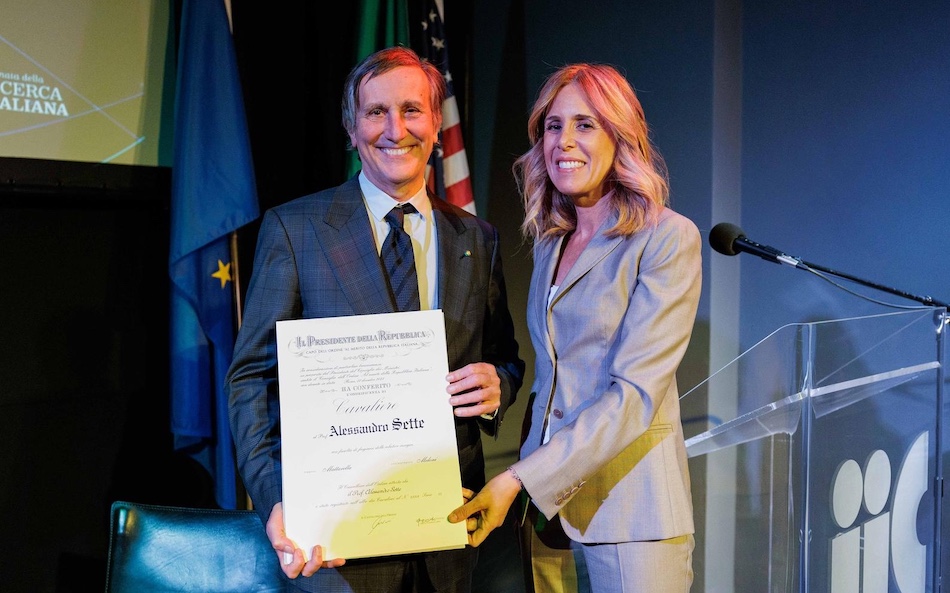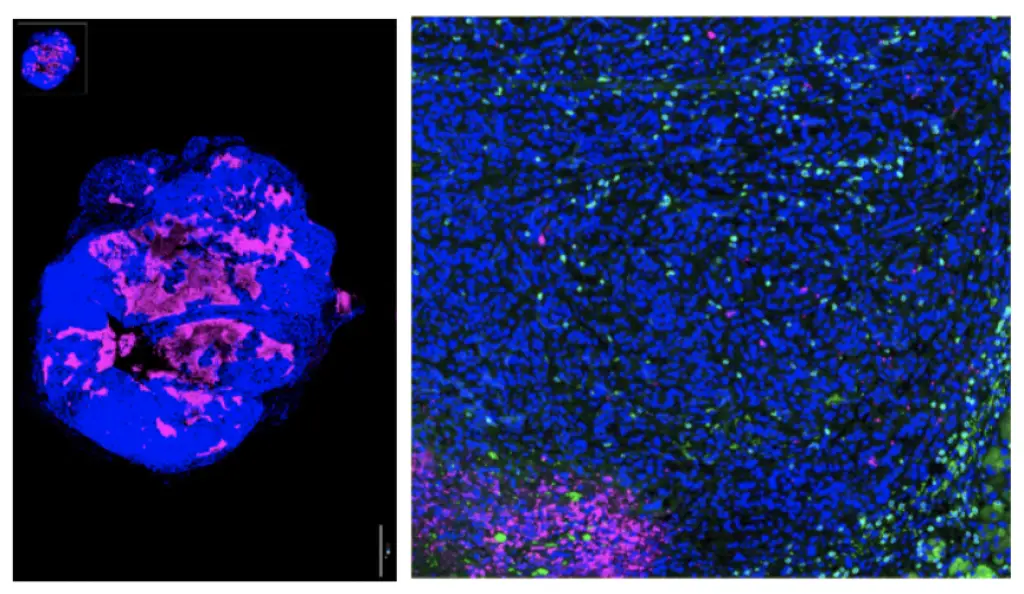
LA JOLLA, CA—La Jolla Institute for Immunology (LJI) is pleased to share the news that LJI Professor Alessandro Sette, Dr.Biol.Sci., has been awarded the Order of Merit from the Italian Republic. Sette was granted this honor, and the status of “Knight,” in recognition of his extraordinary contributions to immune system research.
The Order of Merit was presented on behalf of the President of the Republic on Apr. 30, 2025. The ceremony was part of “Italian Research Day,” held at the Italian Consulate in Los Angeles.
“I am very honored and humbled,” says Sette. “This means a lot to me.”
“It is a real honor and a personal pleasure to bestow upon Professor Sette the recognition of Cavaliere dell’Ordine della Stella d’Italia, which awards his dedication to the study of immunology, by contributing to the development of relations between Italy and the United States in the scientific field,” says the Consul General of Italy in Los Angeles, Raffaella Valentini.
Sette was born in Italy and received his degree from the University of Rome. His career in immunology spans more than 40 years and includes pioneering research in the biotech and academic worlds, with many important contributions to the study of infections, cancer, and neurodegenerative diseases.
Sette’s early work in the mid-80s to mid-90s demonstrated that the main biological function of major histocompatibility complex (MHC) molecules is to bind epitopes. Epitopes are molecular sites that alert immune cells to pathogens, allergens, and more. Sette has developed methods that allow researchers to identify and even predict epitopes from many different diseases. He has been involved in hundreds of epitope identification studies in cancer, autoimmunity, allergy, and infectious disease research.
Sette joined the LJI in 2003 and helped establish the Immune Epitope Database (IEDB), a freely available resource funded by the National Institute of Allergy and Infectious Diseases (NIAID). The IEDB continues to grow today and serves as a vital source of bioinformatics tools and experimental data on antibody and T cell responses to more than 2 million epitopes—and the site receives more than 40,000 visits per month.
At the same time, Sette’s research has shed light on the importance of T cells in combating pathogens such as tuberculosis, dengue, SARS-CoV-2, pertussis, and the virus that causes mpox. His research has also revealed T-cell activity that may fuel Parkinson’s disease and many autoimmune diseases.
Sette has contributed to the development of relations between Italy and the United States in the scientific field, by promoting numerous collaborations with Italian scientists and research institutes and by supporting Italian talents through training projects in California. Throughout his career, Sette has maintained strong ties with leading Italian researchers. His laboratory has co-published more than 60 peer-reviewed studies with research collaborators in Italy, and Sette also serves on the Board of the Scientific Council of Italian Scientists & Scholars in North America Foundation (ISSNAF).
“My laboratory has ongoing collaborations with several universities in Italy, and I’ve been lucky to mentor several Italian scientists who have either stayed in the United States or gone on to successful careers in Italy and Europe,” says Sette.
In 2019, Sette was elected Fellow of the American Association for the Advancement of Science for his distinguished contributions to the field of immunology. Sette has also been elected to the American Academy of Microbiology. Sette’s previous honors also include a Gold Medal from the Italian Society of Internal Medicine and the Boulle-SEI International Award, presented by the La Sociedad Española de Inmunología (Spanish Society of Immunology). Sette also consistently ranks among Clarivate’s “Highly Cited” researchers.
Sette says he is motivated by the chance to make a positive impact in the world.
“I love what I do,” says Sette. “Research improves health, but it also leads to technological breakthroughs, supports innovation, and creates jobs.”


